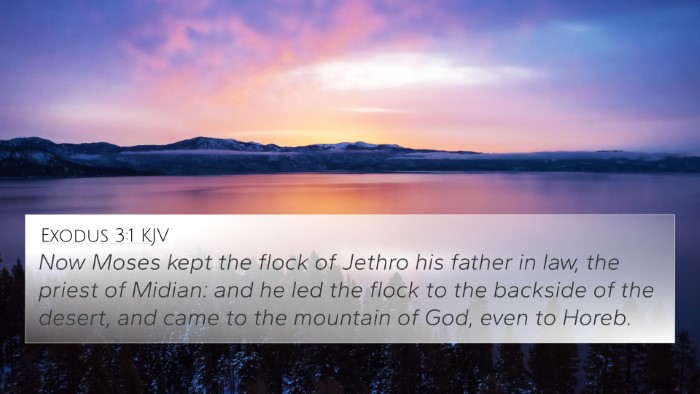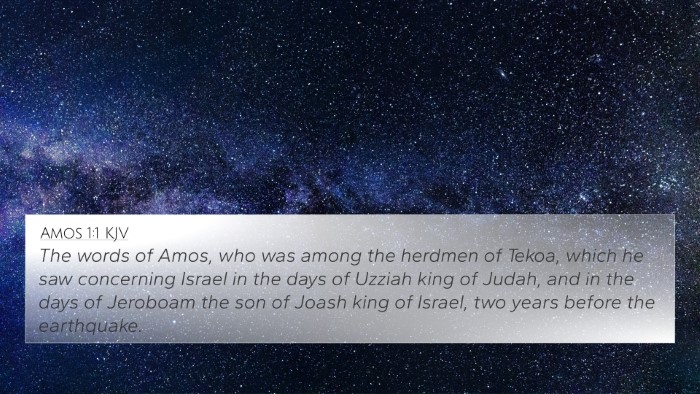Understanding 1 Samuel 16:19
Bible Verse: 1 Samuel 16:19 - "Wherefore Saul sent messengers unto Jesse, and said, Send me David thy son, which is with the sheep."
Introduction
This verse marks a pivotal moment in the narrative of the Old Testament, as it illustrates King Saul's pursuit of David, the future king of Israel. In this passage, we see the unfolding of God's plan amidst the human actions and decisions, highlighting His sovereignty and the connections between the lives of key biblical figures.
Verse Meaning and Context
The context surrounding this verse is rich with meaning. David, who was chosen by God to be the next king, was still a shepherd at this point in time. Saul, burdened by an evil spirit and the consequences of his disobedience, seeks David, likely for his commendable character and musical ability.
Commentary Insights
According to Matthew Henry's Commentary, this verse demonstrates Saul's recognition of David's talents, highlighting how God often uses unlikely people for His purpose. Henry emphasizes that God's selection of David, a humble shepherd, contrasts sharply with Saul's regal stature.
Albert Barnes provides further insight, noting that Saul's message to Jesse reflects a desperate search for relief from his torments. Barnes suggests that this moment foreshadows the deepening relationship between Saul and David as well as the future conflict between them, rooted in jealousy.
Adam Clarke’s Commentary adds that this verse reflects the divine orchestration at play, where God is setting the stage for David's rise to leadership. Clarke points out that David's humble beginnings do not prevent him from God's divine purpose, reinforcing that God looks at the heart rather than outward appearances.
Thematic Connections and Cross-References
This verse can be connected with several other scriptures that elaborate on the themes of divine selection, leadership, and God's purpose. Below are notable cross-references:
- 1 Samuel 13:14 - Discusses God's choice of a man after His own heart, linking to David's eventual kingship.
- 1 Samuel 16:1 - God instructs Samuel to anoint David, showcasing God's choice for leadership.
- Psalm 78:70-72 - Reflects on God's choice of David as shepherd over His people, reinforcing David's role.
- Acts 13:22 - References God's declaration of David as a man after His own heart, directly correlating with 1 Samuel 16:19.
- 1 Peter 5:2-3 - Discusses shepherding God’s flock, drawing parallels between David and spiritual leadership today.
- Jeremiah 3:15 - Prophets alluding to God providing shepherds, connecting to David’s role.
- 2 Samuel 7:8-16 - Speaks of the everlasting covenant with David, linking back to God’s choice of him.
- Romans 8:28 - Reminds us that God works for good in all circumstances, reflecting divine sovereignty in Saul and David's story.
- John 10:11 - Jesus describes Himself as the Good Shepherd, illustrating the theme of shepherding from David to Christ.
- Philippians 2:5-11 - Highlights humility in leadership which David exemplified in his early life.
The Importance of Cross-Referencing
Cross-referencing biblical texts illuminates how themes and motifs interconnect throughout scripture. Tools for Bible cross-referencing, such as concordances and study guides, can enhance understanding, allowing readers to grasp the broader narrative of God’s work through history.
This verse is an excellent starting point for exploring the larger biblical themes of leadership, divine purpose, and God's ability to work through individuals from diverse backgrounds. It demonstrates the significance of inter-Biblical dialogue in understanding the continuity of God's plan from the Old Testament into the New Testament.
Conclusion
The exploration of 1 Samuel 16:19 reveals profound truths about God's choice of David and the unfolding narrative of salvation history. Through careful examination and cross-referencing with other scriptures, readers can better appreciate the connections that scripture provides, deepening their insights into God's word.
Further Study Suggestions
To gain a greater understanding, consider studying:
- Other passages related to David’s life and kingship.
- The context of Saul's downfall and David’s rise.
- The role of divine providence in individuals’ lives in both the Old and New Testaments.












